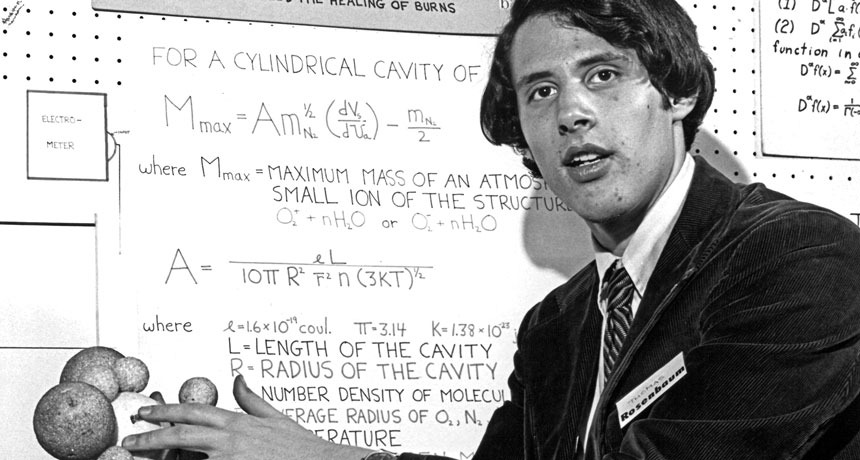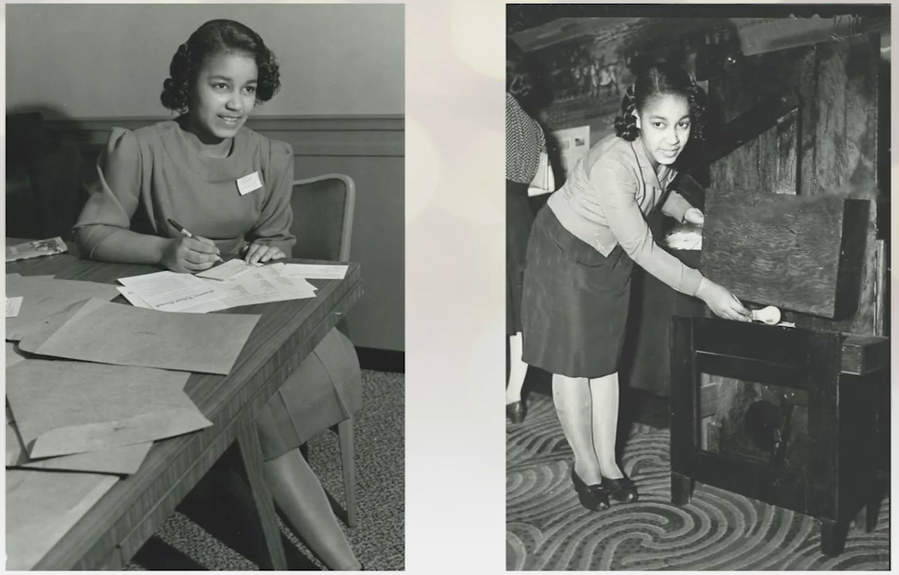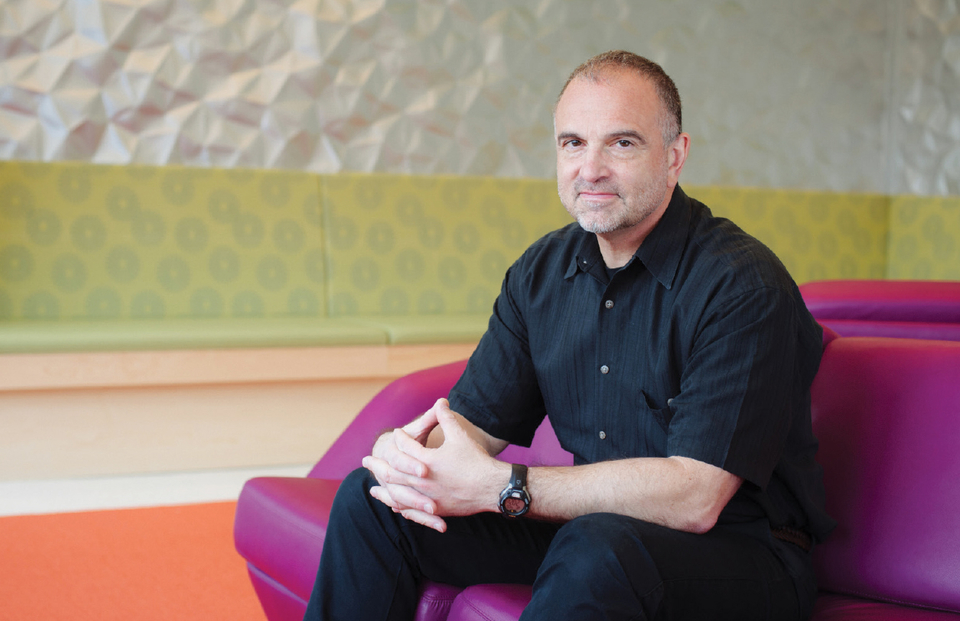与玛雅的谈话:托马斯罗森鲍姆

在这个回归周四,我们正在重新发布以下内容Society Updatefrom the March 30, 2019 issue of科学新闻.
Maya Ajmera, President & CEO of Society for Science & the Public and Publisher of科学新闻, sat down to chat with Thomas Rosenbaum, President of the California Institute of Technology and an alumnus of the Westinghouse Science Talent Search. We are thrilled to share an edited summary of their conversation.
您是1973年西屋科学人才搜索的校友。竞争是如何影响你的生活,也有任何特殊的时刻仍然为你突出吗?
While the process of putting together an independent project had its merits, what really sticks with me is the experience I had in Washington, D.C. The competition interviews, for example, taught me to have the courage of my convictions. I had prepared myself to defend my project, but really the questions ranged well beyond that. It was a little painful, to be honest.
在某些时候,评委问了我真正确实知道答案的问题。我记忆中仍然新鲜的一个是关于太阳风。我回答说,它是来自太阳的粒子,这是正确的。他们非常持怀疑态度和推回,问我“你在说什么?它是光子。“但我知道答案,因为我知道地球中磁场的重要性以使带电粒子偏转。
I realized at that point the judges were not only looking for knowledge of facts, but also the ability to explain why you were saying what you were saying, and as I said, to have the courage of those convictions. As you go on further in the sciences, you learn the art of argument. You learn to defend your positions. You learn to listen well because sometimes your positions are not correct. That was really the first experience I had in that way, so it was seminal for me.
The best part of the competition was the relationships that I developed with the other competitors. Under this pressure cooker, you make connections quickly and they were long lasting.
You are a national leader in the academic world. Can you tell us about that journey and how that path led to your current position as the president of Caltech?
我不能要求that it was any great planned path. I was a physics major in college and earned a Ph.D. in physics. I am an experimentalist and continue to do science. I still have a laboratory and graduate students. Along the way, you’re asked to do certain things for the commonwealth to help your colleagues. It started for me with running the Materials Research Laboratory at the University of Chicago, where I joined the faculty straight out of grad school.
Then I was asked to do more serious administrative jobs, including being provost at the University of Chicago in 2007. I enjoyed interacting with really smart people who did completely different things. That part was fantastic, and I enjoyed those aspects of the job enormously. You have an excuse to talk to people that otherwise you might never learn from. I wasn’t actually looking for a presidency, but when Caltech came up, I was encouraged to apply. I did and decided that maybe I could do something good and influence the direction of science in a place that really can change the world.
What has Caltech done recently to continue to provide a unique and productive environment for the training of future innovators, scientists and engineers?
I can pick out two aspects that I think are very important, and in a lot of ways describe my job. The first is maintaining a strong culture where people can come, dream big and do wonderful things. We provide the resources to let them do that. It’s an attitude about what you can accomplish in science.
第二部分我s focus. Caltech is unusual in that we actually don’t try to get bigger; we try to get better. We’re constantly evaluating what the important scientific and technological problems are, and we take big bets. We try to operate in a way where we identify the most important issues, focus on them and invest broadly across disciplines in search of solutions to big problems.

您最近在2018年宣布在CALTECH启动的新视觉文化计划。您认为艺术在您的校园以及茎干中扮演什么职位?
我坚信,人文和艺术对于形成培养生命激情的圆满的人类来说是必不可少的,并且可以广泛为社会做出贡献。我们在卡特克严肃地教导艺术,社会科学和人文学科。这是我们课程的重要组成部分。我争辩说,它也让您成为一个更好的科学家,因为艺术允许您从不同的观点退出特定主题并查看它。
When you were inaugurated as Caltech’s ninth president in 2014, you sent a command order to the Curiosity rover on Mars. What was that like?
As you know, Caltech runs the Jet Propulsion Laboratory for NASA. On the morning of my inauguration, I went out to JPL, and I gave a talk there. At the end of the ceremonies, this robot comes rolling across the stage toward me, and it’s holding an iPad. In the middle of the iPad is this big red button. It stops in front of me, and now I have the decision, do I push this red button? Who knows what’s going to happen?
Having faith in my colleagues, I pushed the red button. They told me that I sent commands to the Curiosity rover that day, telling it where to move, where to take photos and so on and so forth. Fortunately, nothing went wrong that day, so I could fully enjoy the experience.
What character traits do you look for in prospective students and faculty at Caltech?
我们寻找无所畏惧:没有努力努力的人。我们寻找将重新发明自己的人。也就是说,如果他们发现一个重要的问题,即使它与目前的技能与他们的技能不匹配,它们将掌握正确的背景,与合适的人交谈并重新发明他们可以做的事情。我们寻找心灵和目的的灵活性。我要强调没有人回答。关于CALTECH和我们的同龄人的环境中的环境的美妙事情是您遇到同事和学生,他们具有近视问题的途径。分享这些方法,这些不同的背景和随着它们的不同观点是导致进步的原因。
At Society for Science & the Public, we want every student to have the opportunity to be a scientist or engineer if that’s what they choose. Do you think the United States is doing enough to foster the next generation of STEM leaders?
我认为社会的作用正好正确。但我认为我们需要做更多的是使理智进行科学的兴奋。有很多关于科学的刻板印象,这不对。这概念认为,科学是一种孤独的生活,你穿一件白色的外套,进入地下室实验室,多年工作,偶尔你出来看灯并被拂去。事实上,成为一个科学家的互动体验。如果您运行实验室,您基本上运营了一项小型企业。你与世界各地的同事相交。你说与跨越国际界限的相同语言。您提出了引人注目和痴迷的问题。
What advice would you give to young people just starting higher education or an early professional career?
我会说享受它。你可以做任何事情。但是你应该注意到路径可能是蜿蜒的,所以如果你不直接从点到B直接担心,你不应该担心。事实上,绕行有时比终点更有影响力。
你现在在看什么书?
I just read Hanna Holborn Gray’s memoir,学者的生活. It is a remarkable story of generations of European academics leaving Nazi Germany and reinventing their lives here in the United States. She also writes a lot about the role universities can play in societies, the importance of seeking truth, of academic freedom, of creating community, of the importance of immigration and the way it can transform societies for the better. On my nightstand there’s always a stack of纽约人magazines. I am never up-to-date, but I am trying.
今天世界面临了这么多挑战。什么让你保持在晚上?
人和思想的自由流动一直是科学进步的秘诀。它争辩,一直是美国的竞争优势,这是来自世界各地的真正聪明和创造性的人选,选择来到这里并为社会做出贡献。我们正在经历一段时间,我们看到这些可能性的缩减。我认为这对科学对此而言,这对美国来说是不利的。当然,另一个是气候变化。我不会在这里非常原创,但我真的担心我们为孩子和孙子们带来了什么样的世界。这是一个难题的问题,因为我们现在必须采取效果,几十年来没有完全出现的效果,或者以最糟糕的形式出现。社会在解决这些问题方面并不擅长。


